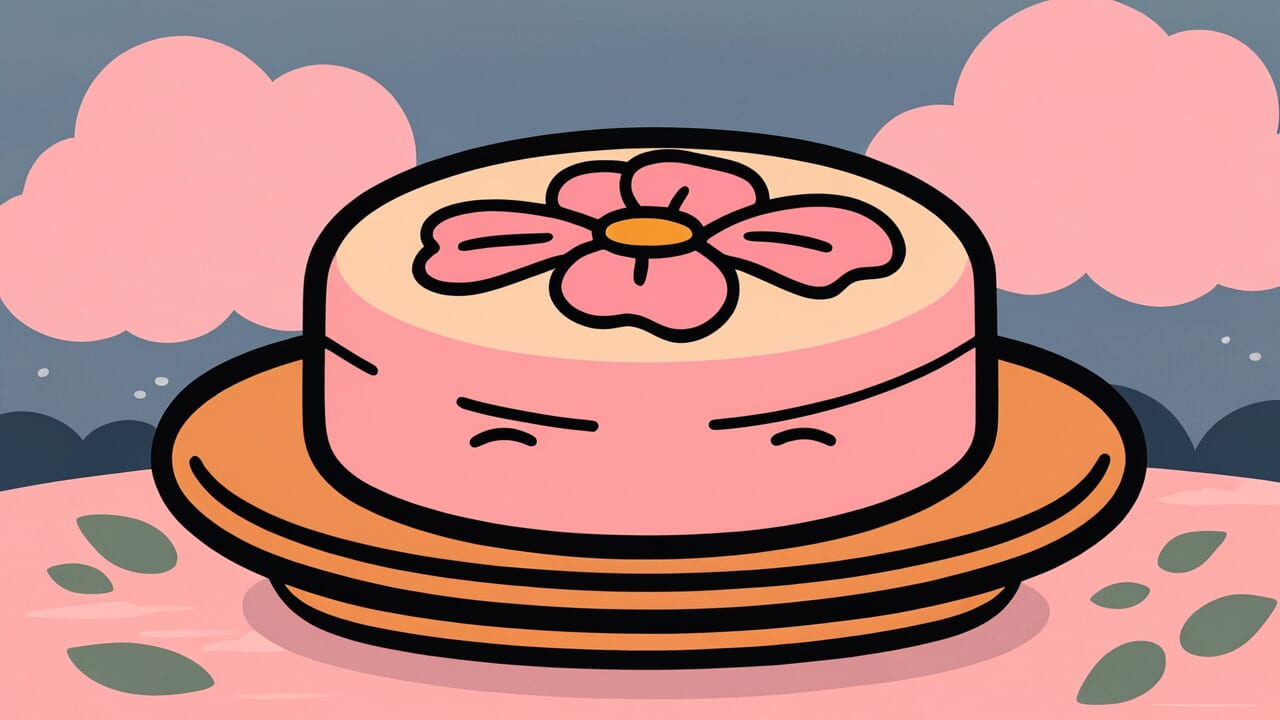How to Read “An aunt’s rice cake and a dry evening shower will always come”
Oba no botamochi to kan yūdachi no konu koto wa nai
Meaning of “An aunt’s rice cake and a dry evening shower will always come”
This proverb expresses a rule of experience. When you see signs that something will happen, it definitely will.
Just as rice cakes appear when you visit your aunt’s house, just as evening showers fall when summer clouds look threatening, things with clear signs will surely occur.
People use this saying when signs or omens appear. Whether good or bad, when you see the signs, you should prepare yourself.
It’s especially used to teach acceptance of unavoidable events. Don’t resist pointlessly, but ready your heart instead.
Even today, this teaches us that everything has warning signs. If you don’t miss these signs, you can predict the outcome.
This expression contains practical wisdom. Prepare when you should prepare. Get ready for what’s coming.
Origin and Etymology
No clear written records explain this proverb’s origin. However, it likely came from common people’s daily life during the Edo period.
Let’s first consider “an aunt’s rice cake.” In Edo period Japan, aunts serving rice cakes to their nieces and nephews was completely normal.
Rice cakes were a luxury sweet made from rice and sweet bean paste. For children, they were a special treat.
When you visited your aunt’s house, rice cakes almost always appeared. This was a reliable, expected event.
“Dry evening shower” refers to rain showers that fall on summer afternoons. On hot summer days, when clouds gathered and thunder rumbled, rain almost certainly followed.
In an era centered on agriculture, people were sensitive to weather changes. When signs of an evening shower appeared, it always became reality.
This too was common knowledge based on experience.
By pairing these two certain events, the proverb expresses a life principle. “When signs suggest something will happen, it definitely will.”
This saying contains the wisdom of common people. They found life’s truths through careful observation of everyday details.
Usage Examples
- Those two getting married is like an aunt’s rice cake and a dry evening shower will always come—anyone can see it
- If you keep practicing like this, passing is like an aunt’s rice cake and a dry evening shower will always come, so have confidence
Universal Wisdom
This proverb speaks to a universal truth. The world has inevitable flows, and humans intuitively understand this.
We encounter countless events daily. Many seem to happen suddenly, but they’re actually built from small accumulated signs.
Humans are creatures who fear uncertainty. The anxiety of not knowing what tomorrow brings constantly troubles us.
But humans also have the ability to learn from experience. By observing the same patterns repeatedly, we discover laws.
“When this sign appears, this will happen next.” We’ve found these patterns throughout history.
This proverb has been passed down for generations because it answers humanity’s fundamental desire for predictability.
The world isn’t completely chaotic. It has a certain degree of order and regularity.
This reassurance has given people courage to live.
The proverb also contains wisdom about resignation and acceptance. What will come will come.
Rather than resist pointlessly, it’s wiser to prepare mentally and accept it. This is philosophical insight.
Don’t be tossed about by fate. Instead, read fate and respond to it.
Our ancestors teach us that human dignity lies in this ability.
When AI Hears This
Human memory systems have interesting biases. Normal days when your aunt came and had rice cakes don’t stick in memory.
Only the times she didn’t have them leave strong impressions. This is called availability heuristic.
It’s a phenomenon where we mistakenly think easily remembered events happen more frequently.
Let’s calculate the actual probability. Say your aunt visits 10 times per year, and the probability of having rice cakes at home is 30 percent.
Then the probability of not having rice cakes is 70 percent. Statistically, 7 out of 10 visits would have no rice cakes.
But humans feel “not again.” Why? Because emotions like awkwardness and guilt strengthen the memory.
This is negativity bias.
More interesting is the “paradoxical truth” this proverb shows. Actually, the probability of no rice cakes when aunt comes equals the probability of no rice cakes normally.
Yet humans perceive the former as special bad luck. The brain has a tendency to find patterns in coincidences.
It interprets random events as if they have causal relationships.
In other words, this proverb perfectly captures a psychological mechanism. Humans recognize statistically normal phenomena as “laws” due to cognitive distortions.
Lessons for Today
This proverb teaches modern people the importance of reading signs. Small signals are constantly being sent around us.
Cracks in relationships, changes in health, seeds of problems at work. Not missing these signs and addressing them early is key to preventing big troubles.
In modern society, we’re drowning in information. We tend to overlook truly important signs.
But this proverb urges us to observe carefully. If your intuition tells you “something’s about to happen,” don’t ignore it.
Premonitions gained from experience and observation are often correct.
At the same time, this proverb teaches the importance of preparation. If an event is unavoidable, don’t panic—prepare calmly instead.
Just as you carry an umbrella when you know an evening shower is coming, you can face life’s changes with preparation.
Don’t cower in anxiety. Instead, predict what’s coming and develop the power to handle it.
This is the practical wisdom this proverb offers us living in modern times.



Comments